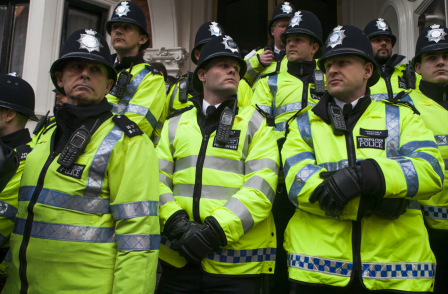
The Interception of Communications Commissioner has condemned the “poor standard” of applications to view telephone records made by police professional standards departments in the UK.
The annual report of commissioner Sir Anthony May comes a month after his office's report on police use of the Regulation of Investigatory Powers Act to find the phone records of journalists.
That report found that the phone records of 82 journalists were targeted by police in a three-year period and that forces did not consider Article 8 of the European Convention of Human Rights (freedom of expression) when signing off their own applications.
Since then the Government has agreed to change the law to ensure telecoms requests against journalists need the approval of a judge.
May's annual report states that 517,236 authorisations and notices revealing telecoms data to law enforcement agencies were granted in 2014 (up from 514,608 in 2013).
The Metropolitan Police appears to be the biggest user of RIPA to acquire telecoms data, with 45,249 applications in 2014, with MI5 as the next most prolific with 39,815 applications.
Most police use of RIPA against journalists has involved investigations into the unauthorised disclosure of information (many, but not all cases, involved allegations that police officers had been paid for information).
In his annual report May notes that “police cannot use their powers within RIPA 2000 to acquire communications data when the criminal threshold has not been met, or for the sole intention of obtaining evidence to merely to make an officer or member of their staff subject to an internal discipline hearing”.
He said: “The inquiry found that an excessively high number of the applications submitted by Professional Standards departments were completed to a poor standard and did not adequately justify the necessity and proportionality justifications.
“In a number of applications the criminal allegation or the criminal offences suspected were not set out or there was no description as to how they were linked to, and aggravated by, the officer’s misuse of a position in public office.
“The applications often relied upon vague and dubious descriptions under the ‘umbrella’ of misconduct in public office and my inspectors were not satisfied that the high threshold for the offence of misconduct in public office had been met.
“There did not appear to be any intention for some of the matters to be subject of a prosecution within a criminal court.”
The Met Police has been widely condemned within the journalism industry after its professional standards department accessed the call records of The Sun to idenfity officers accused of leaking information about the Plebgate affair. Three officers were sacked, but the Crown Prosecution Service said they had no case to answer.
May said: “In conclusion this inquiry has identified that a number of the requests submitted by Professional Standards departments did not satisfy the necessity requirements and/ or were disproportionate.
“As a result of these serious concerns my office engaged with the National Policing Lead for the Counter Corruption Advisory Group to outline the compliance issues identified. The National Policing Lead wrote to all police forces’ professional standards leads and heads of department in December 2014 setting out our concerns and we expect to start to see improvements in compliance in this area.”
Email pged@pressgazette.co.uk to point out mistakes, provide story tips or send in a letter for publication on our "Letters Page" blog
